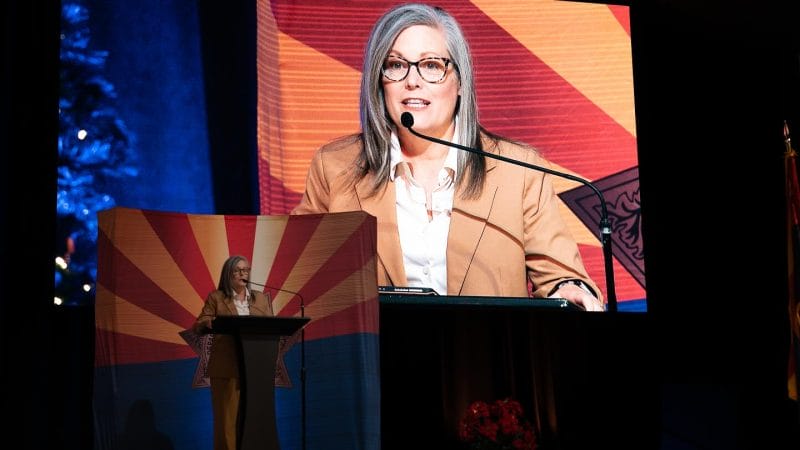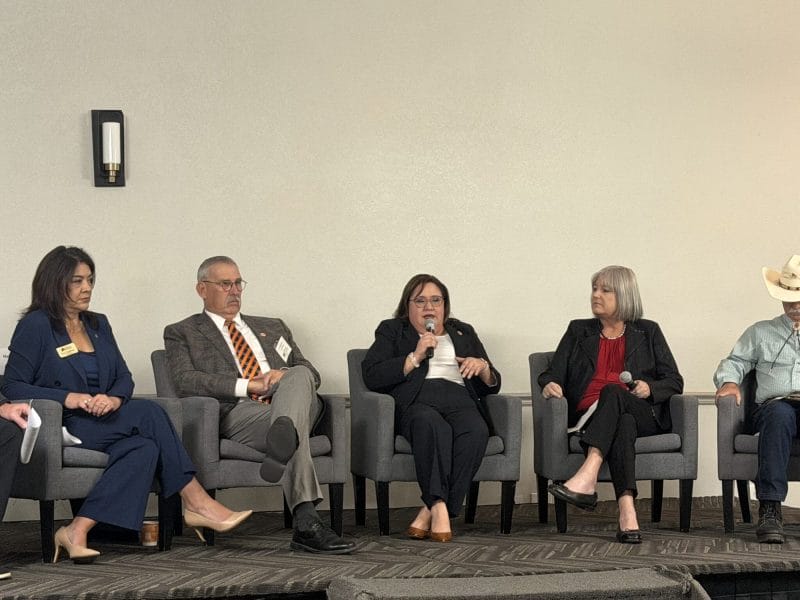
By Isaac Windes | Cronkite News
The House began work Monday on the largest tax reform push in over three decades, with most Arizona lawmakers tentatively embracing the concept even as they expressed reservations about details in the 429-page bill.
GOP leaders who unveiled the plan Thursday said it will spur the economy by cutting corporate and individual tax rates, and eliminating some deductions, among other things. That economic growth would offset any reductions in government revenues, they argue.
But Democrats were calling it “the same-old tried-and-failed formula of trickle-down economics” that would benefit the wealthy while slashing government revenues by nearly $1.5 trillion over the next 10 years.
Democrats were also upset by the pace at which the 429-page bill is being pushed through, with committee work starting Monday without public hearings being held. House GOP leaders have said they are “on track” to have a bill by Thanksgiving – leaving only a handful of legislative work days to get a bill out of committee and through the House.
But some House members said tax reform cannot come too soon.
Rep. Andy Biggs, R-Gilbert, said “there is much to like about the plan,” but that he wants to see changes, including a provision that would make any changes “retroactive to Jan. 1, 2017, allowing everyone to feel immediate effects of the reform.”
“Sadly, if this tax package was enacted today as currently written, Americans would have to wait over a year to receive most benefits,” Biggs said.
He called for two other changes to the bill, including a restoration of the adoption tax credit that would be eliminated under the current plan, and a reduction in all tax brackets. Currently, the tax rate for single earners making more than $500,000 or married couples making more than $1 million a year is 39.6 percent, and that would not change under the House plan.
But Rep. Raul Grijalva, D-Tucson, said the plan already gives too much to wealthy taxpayers while shortchanging lower- and middle-income earners.
“This tax plan is nothing but a massive cut for the wealthy and corporations that increases our deficit and provides Republicans with the ammunition they are after to force trillions of dollars in cuts from Social Security … and other essential programs,” Grijalva said in a statement released by his office.
While Grijalva wholeheartedly rejected the plan, Rep. Martha McSally, R-Tucson, came closest to a wholehearted endorsement of it.
McSally said the bill “will give Americans a break” by cutting “our corporate tax rate from the highest in the industrialized world so American companies can compete.” Citing GOP estimates, she said “a single mother working at a local restaurant in Tucson and making $30,000 a year to support herself and her daughter will get a tax refund of $1,000 – that’s $700 more than she receives today.”
But analysts say those numbers only tell half the story. Hunter Blair, a budget analyst with the Economic Policy Institute, said the tax cuts individuals would get initially from the plan would fade over time.
“Those numbers seem correct for the first year,” Blair said. “But when you look at what happens at later years, it basically reverses itself.
“What’s hiding in the background is that while corporate tax cuts stay, the individual cuts leave,” he said.
Reaction to the bill did not fall cleanly along party lines. Rep. Tom O’Halleran, D-Sedona, said he is “pleased with aspects of this proposal that would bring much-needed relief to families,” but added that he remains “concerned that many critical deductions, on which millions of Americans rely, could be eliminated.”
“Additionally, I worry that our corporate tax policy will not do enough to encourage businesses to bring back American jobs or create new jobs in our communities,” O’Halleran said in a statement last week.
In the Senate, meanwhile, Sen. Jeff Flake, R-Arizona, said Congress “cannot simply assume that we can cut all taxes and realize additional revenue.”
“It’s important that tax reform comes as well,” Flake said last week in a speech on the Senate floor.
While Flake agrees that tax relief is needed, that can’t be the only solution.
“We have seen this before,” he said. “We make the cuts now. We rely on rosy economic assumptions, and then in the out-years, if those don’t come about, then we forget what we were supposed to do in terms of reform.
“We can’t do that today, not with the debt of $20 trillion, not with a deficit of over $600 billion a year adding to that total debt,” he said.







